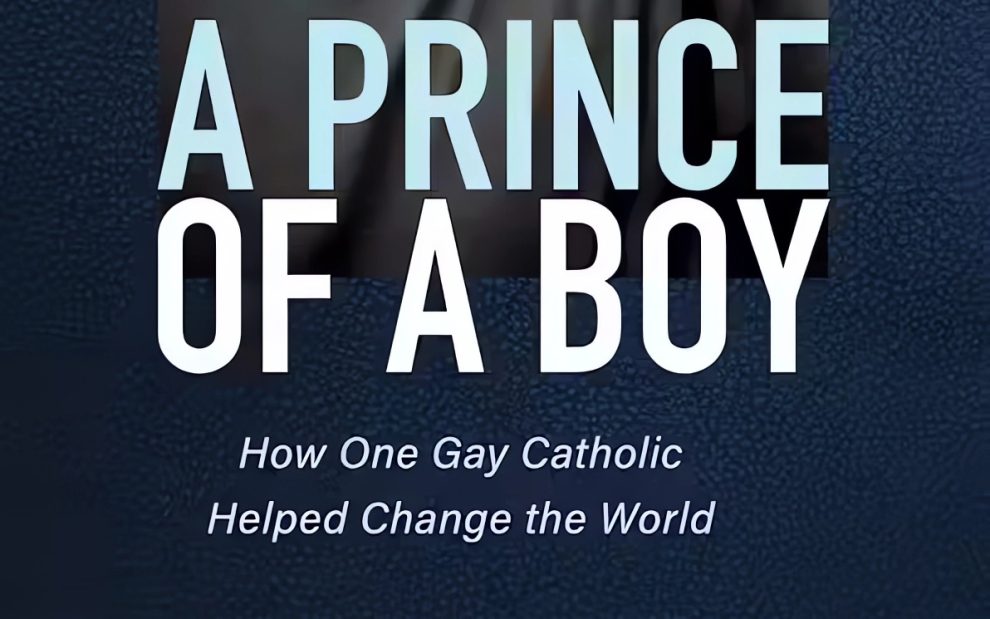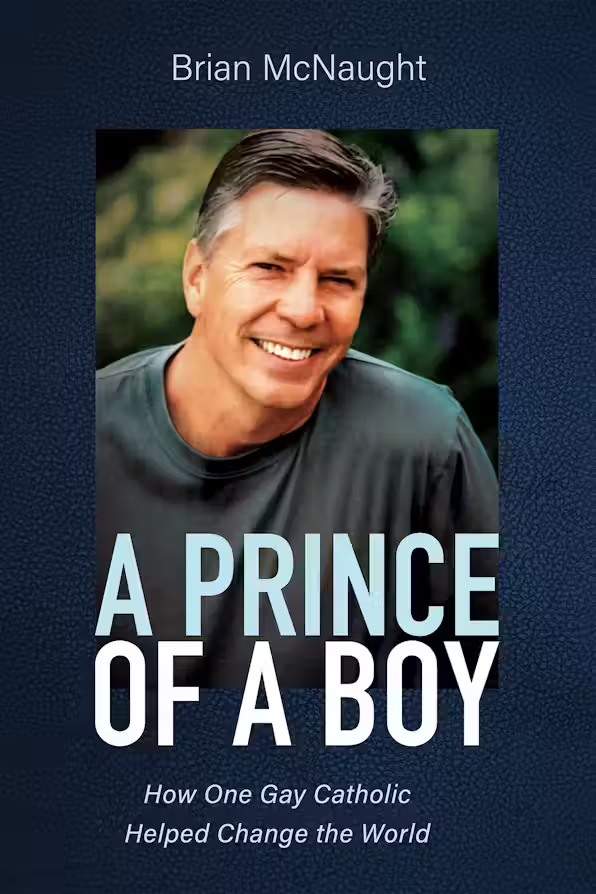A Prince of a Boy: How One Gay Catholic Helped Change the World
By Brian McNaught (Cascade Books, 2025)
When Brian McNaught publicly affirmed that he is gay, he was fired by Michigan Catholic. Raised in a conservative Midwestern Irish Catholic family and studying for the priesthood, McNaught found the experience cataclysmic—but it wasn’t the end of the story. Being fired was the start of a more than 50-year journey in which McNaught pioneered LGBTQ+ inclusion in religious and secular settings as a writer, speaker, and educator. His new book A Prince of a Boy (Cascade Books)is his autobiographical reflection on his own legacy and the impact that he has had on LGBTQ+ and wider Catholic communities.
In semi-chronological chapters, McNaught traces his history as a gay Catholic. He recalls moments of love and joy, such as the relief he felt when his parents embraced his current partner Ray—also from a conservative Midwestern Catholic family. He also documents loss and grief, including a suicide attempt and that life-altering day in the office of the editor of Michigan Catholic.
At the time he was a writer struggling to make ends meet, and he knew that choosing to affirm his identity would be risky. But he felt that, having made the “hero’s journey” to liberation and living authentically, he owed it to himself and his communities to share his story. Decades later, A Prince of a Boy stands as the ultimate realization that goal. Additionally, thanks to his involvement in founding and fostering the Dignity/Detroit community, the book is a vital historical record of many others who made “the hero’s journey” but whose stories go unrecorded and uncelebrated.
The history of LGBTQ+ Catholic organizing remains largely unrecorded, McNaught writes, because of the continued separation between LGBTQ+ and faith communities, and the systemic queerphobia that the latter often enable or promote. Queer and trans people of faith exist and lead their communities—as McNaught’s story affirms—but “the courageous and steadfast prophetic service of those gay and lesbian people who have stayed in their denominations to impact their church’s understanding of sexuality is normally ignored by gay historians,” McNaught writes.
McNaught also observes that, “people who must examine their faith as outsiders usually go a lot deeper than those who don’t have to think about it.” As a result, although he was never ordained by the church, McNaught openly considers himself a priest and a minister to the wider LGBTQ+ and Catholic communities.
Many LGBTQ+ people experience sacredness not only in church but in affirming spaces. For McNaught, such sacred spaces included his apartment where he hosted Dignity/Detroit Masses, and the human sexuality workshops he co-led at Thornfield, the house that he shares today with Ray. Writing about his experience in a famous queer-friendly bar in Detroit, McNaught writes: “I went to the Woodward, with its familiar smell of cologne and beer. It welcomed me as did the smell of incense and candles in church.”
This discussion of sacred queer spaces, especially from a Catholic standpoint, reminded me of how I have found sacred beauty at Trade, a queer bar in Washington, D.C. The bar hosts events explicitly named Church—celebrations that consecrate our communities as divine and whole, despite the absence of religious institutions’ approval.
I found McNaught’s book spiritually refreshing for many reasons but particularly because he does not shy away from how his faith transcends traditional Catholic practice and dogma. He credits Buddhist and Taoist readings as vital to deepening his intimate relationship with Jesus. He also openly calls out systems of exploitation and abuse that he feels misrepresents the Jesus he knows and is close friends with.
In one of my favorite lines of the book, McNaught writes that “my friend Jesus got kidnapped by televangelists and conservative politicians.” This is also relevant to how Catholic leaders in the late 20th century and today sometimes leverage their power to support political and social movements at odds with Christian love and acceptance—movements that deny the rights of LGBTQ+ people, including LGBTQ+ Catholics.
At the same time, McNaught actively claims being Catholic “for the same reason I call myself a McNaught. It’s the name I grew up with, it’s where I find my happiest childhood memories, and I see no reason to change my name just because I rarely agree with my father.”
McNaught knew he was Catholic before he knew he was gay. Yet by accepting the latter, he became closer to God and answered God’s call to minister to LGBTQ+ people, inviting others to live and love as themselves and to fight for recognition, as he did. A Prince of a Boy celebrates a life that did not end when McNaught dared come out as gay—it was just getting started.
Image: A Prince of a Boy cover, Cascade Books














Add comment